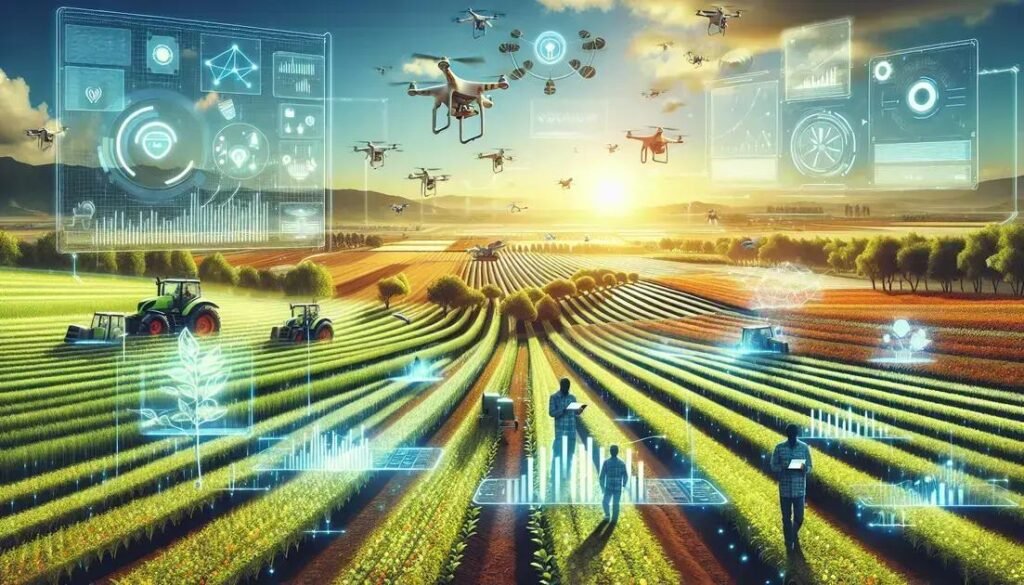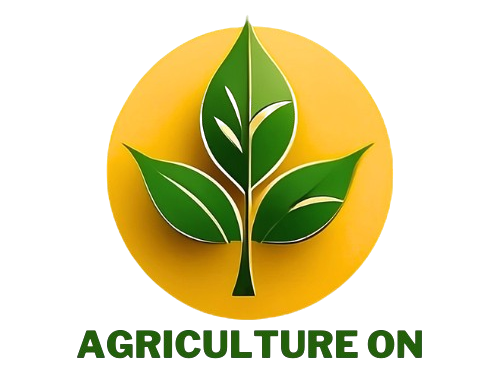Agriculture 4.0 is a concept revolutionizing agricultural production.
By combining technologies such as artificial intelligence, the Internet of Things (IoT), and big data, it’s possible to increase efficiency and reduce costs on farms.
In this article, we’ll explore the concepts and benefits of Agriculture 4.0, along with its challenges and success stories.
Please accept cookies to access this content.

Agriculture 4.0: concepts and definitions
Agriculture 4.0 refers to the application of Information and Communication Technologies (ICT) and artificial intelligence (AI) in farming, aiming to increase productivity and reduce costs. This approach marks an evolution from agriculture 1.0 (manual labor), agriculture 2.0 (use of machinery), and agriculture 3.0 (adoption of information technologies). Agriculture 4.0 combines data collection, big data analysis, and AI application to optimize processes and enhance decision-making.
It offers numerous benefits, such as increased productivity, cost reductions, improved product quality, and enhanced storage capacity. Moreover, it minimizes environmental impact through efficient resource management and reduced reliance on natural resources.
Real-time monitoring of production and inventory also simplifies decision-making. However, implementing Agriculture 4.0 can be challenging, particularly for farmers unfamiliar with ICT. Investments in infrastructure and training are necessary to use these technologies effectively.
Lack of internet access and technological resources can also hinder its adoption, requiring tailored solutions to meet farmers’ specific needs.
Success stories in Agriculture 4.0
Agriculture 4.0 has shown promising results globally, with successful examples in Germany, China, and the U.S.:
- Germany: A farm reduced costs by 20% and increased productivity by 15% through Agriculture 4.0 technologies.
- China: AI application led to a 30% cost reduction and a 25% productivity boost.
- USA: Implementing Agriculture 4.0 cut costs by 25% and raised productivity by 20%.
The role of artificial intelligence
AI is a cornerstone of Agriculture 4.0. It can analyze data, predict issues, and support decision-making. AI enables process automation, error reduction, and increased efficiency.
Additionally, it plays a vital role in monitoring the health of plants and animals, allowing for personalized treatments that improve outcomes.
The future of agriculture
The future of agriculture looks promising with Agriculture 4.0. Technology will drive more efficient production, cost savings, and better product quality.
It also contributes to reducing environmental impacts by enabling more sustainable resource management. Farmers must embrace the importance of Agriculture 4.0 and adapt their practices to these new technologies.
Benefits of Agriculture 4.0
- Increased productivity: Enhanced yields and optimized farming operations.
- Cost efficiency: Reduced resource use and operational costs.
- Environmental sustainability: Efficient resource management and lower ecological footprint.
- Real-time monitoring: Streamlined decision-making processes.
Challenges of implementation
Adopting Agriculture 4.0 presents some challenges, including:
- Infrastructure investments: Initial costs for technology and connectivity.
- Lack of digital skills: Farmers may require training to fully leverage these innovations.
- Access to technology: Connectivity issues in remote areas need addressing.
FAQ – Frequently asked questions about AI in Agriculture
What are the benefits of AI for farming?
AI brings numerous advantages, including process automation, data analysis for strategic decisions, resource optimization, and improved competitiveness.
Is AI expensive for small farms?
There are scalable, affordable AI solutions for small-scale operations, with tools catering to various budgets and needs.
How can I start implementing AI in my farm?
Begin by identifying areas where AI can have the most impact, such as automating repetitive tasks or improving data analysis. Start with a pilot project using relevant tools.
What tools can I use?
Options include AI-powered farm management platforms, chatbots for customer support, data analysis software, and automation tools.
Do I need a specialized team to use AI?
Not necessarily. Many AI tools are user-friendly and intuitive. However, training your team can help maximize the benefits and ensure better results.



